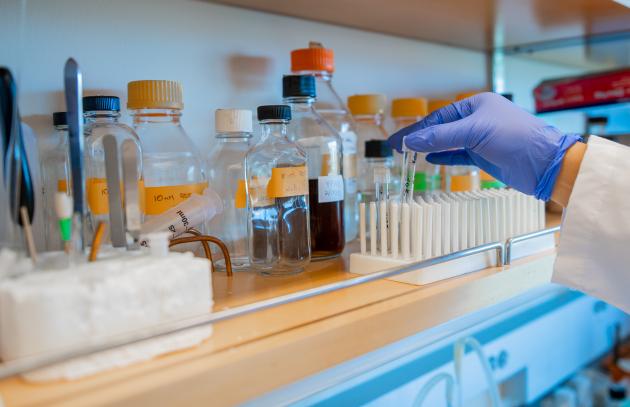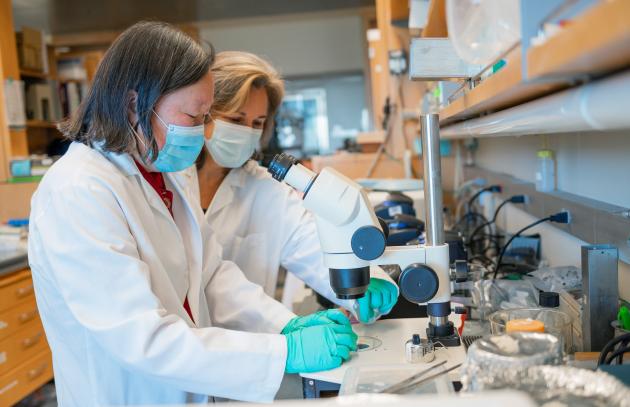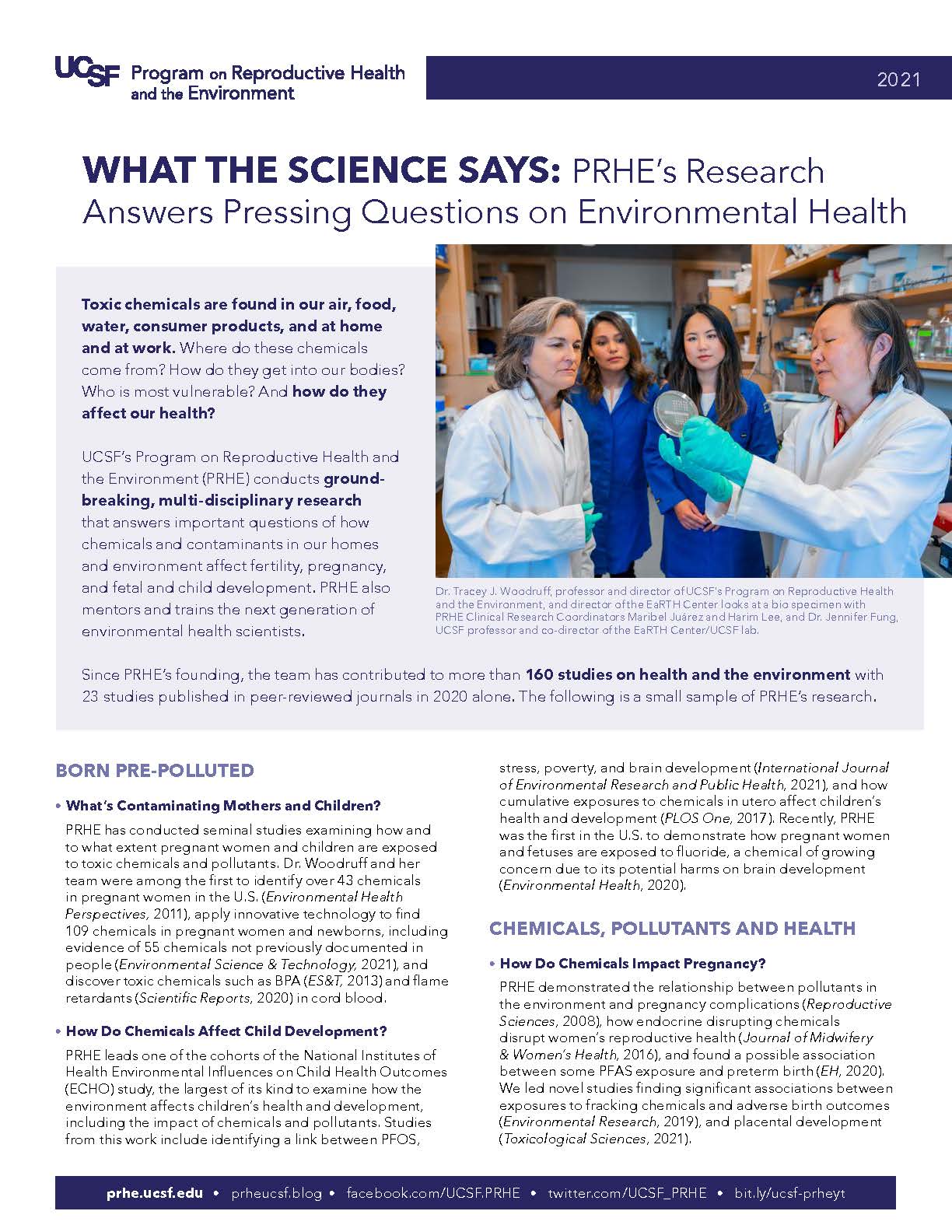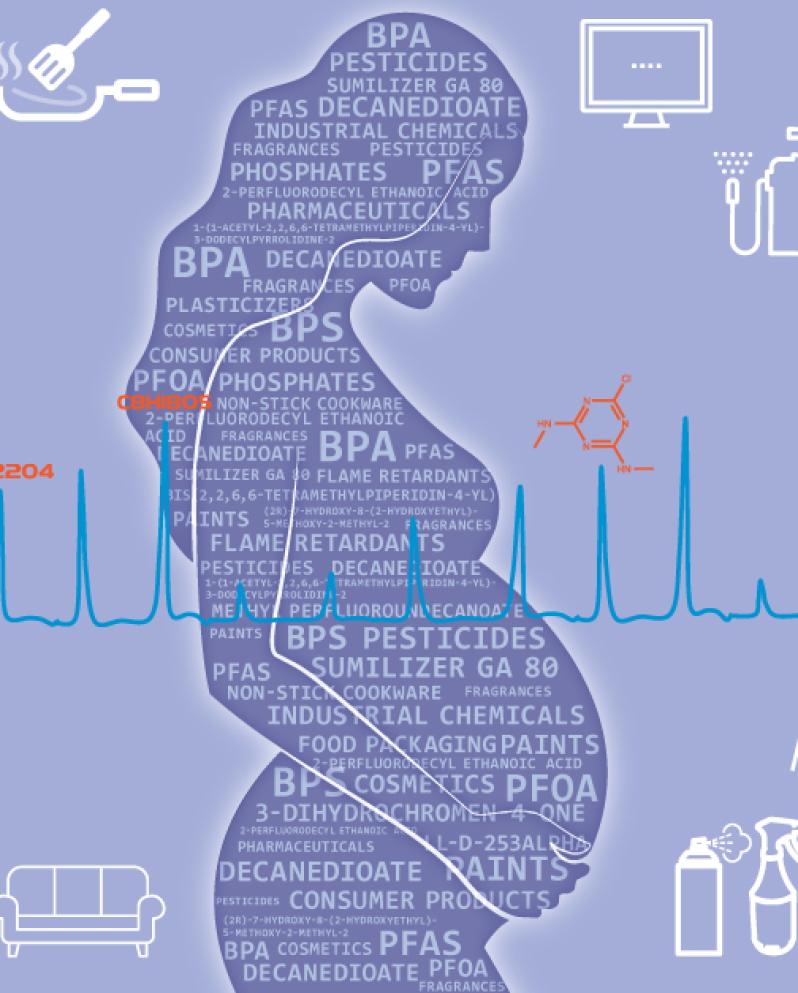Investigating environmental links to disease
Our ground-breaking, multidisciplinary research answers important questions on how chemicals and contaminants in our homes and environment affect fertility, pregnancy, fetal and child development, and health equity. We prioritize filling gaps in knowledge that support clinical decision-making and public policy.
We have written or contributed to more than 180 studies on health and the environment with 23 studies published in peer-reviewed journals in 2020 alone.
UCSF Study Finds Evidence of 55 Chemicals Never Before Reported in People
Scientists at UC San Francisco have detected 109 chemicals in a study of pregnant women, including 55 chemicals never before reported in people and 42 “mystery chemicals,” whose sources and uses are unknown. The chemicals most likely come from consumer products or other industrial sources.
The study was published March 17 in Environmental Science & Technology.
Major Research Areas

Chemicals
We study how harmful chemicals put into our air, food, water, homes, products, and workplaces affect pregnancy, child development, and health.

Plastics
Plastics are a petro-chemical product packed with endocrine-disrupting chemicals that can harm pregnancy, birth outcomes, neurodevelopment, and immune systems.

Climate and Wildfires
We examine how climate is impacting women's and children's health and how to protect pregnant people from wildfire smoke.
Key Research Projects

ECHO
The Environmental Influences on Child Health Outcomes (ECHO) is the largest NIH-funded study to date to explore how chemicals and pollutants in our environment impact pregnancy and child development.

DREAM
The Discovering cancer Risks from Environmental contaminants And Maternal/child health (DREAM) project collected data to explore how chemicals put in our air, food, and water increase cancer risk.

ENACT Center
In partnership with Stanford University, the Endometriosis Center for Action, Community Engagement and Training (ENACT) will work to improve endometriosis diagnosis and treatment by exploring the origins and environmental links to this disease.

PRHE conducts groundbreaking, multi-disciplinary research that answers important questions of how chemicals and contaminants in our homes and environment affect fertility, pregnancy, and fetal and child development. PRHE also mentors and trains the next generation of environmental health scientists.
Published Studies
Pregnant women and their offspring are vulnerable to the adverse effects of environmental and psychosocial stressors, individually and in combination. Here, we review the literature on how air pollution and metal exposures may interact with structural and individual-level stressors (including poverty and stressful life events) to impact perinatal and child outcomes.
Previous studies have shown a correlation between fluoride concentrations in urine and community water fluoride concentrations. However, there are no studies of the relationship between community water fluoridation, urine, serum, and amniotic fluid fluoride concentrations in pregnant women in the US.
Our objective was to incorporate social and built environment factors into a compendium of multilevel factors among a cohort of very low birth weight infants to understand their contributions to inequities in NICU quality of care and support providers and NICUs in addressing these inequities via development of a health equity dashboard.
The Environmental Influences on Child Health Outcomes (ECHO) Program will evaluate environmental factors affecting children’s health (perinatal, neurodevelopmental, obesity, respiratory, and positive health outcomes) by pooling cohorts composed of >50,000 children in the largest US study of its kind. Our objective was to identify opportunities for studying chemicals and child health using existing or future ECHO chemical exposure data.
Many California nail salon workers are low-income Vietnamese women of reproductive age who use nail products daily that contain androgen-disrupting phthalates, which may increase risk of male reproductive tract abnormalities during pregnancy. Yet, few studies have characterized phthalate exposures among this workforce.

